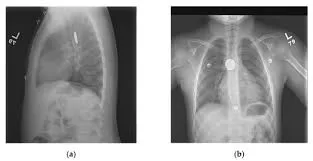Researchers from Virginia Tech’s College of Agriculture and Life Sciences have made a significant breakthrough in the fight against malaria, uncovering a novel strategy to combat the deadly parasite by targeting its essential nutrient scavenging process.
Malaria, a disease caused by the Plasmodium parasite, remains a major global health threat, affecting millions of people each year. The parasite relies on scavenging fatty acids from its host to fuel its growth and replication, presenting a crucial vulnerability that researchers have now exploited.
Led by Michael Klemba, associate professor of biochemistry, the research team identified two enzymes critical for breaking down host lipids to release the fatty acids necessary for the malaria parasite’s survival. By inhibiting these enzymes, the researchers were able to disrupt the parasite’s ability to obtain essential nutrients, effectively halting its growth.
“Our breakthrough lies in understanding and targeting the parasite’s reliance on scavenging fatty acids from its host,” said Klemba. “By disrupting this process, we have uncovered a promising new avenue for combating malaria.”
The study, published in the Proceedings of the National Academy of Sciences of the United States of America, sheds light on the intricate metabolic pathways utilized by the malaria parasite and underscores the importance of targeting these pathways for therapeutic intervention.
The research builds upon previous findings that demonstrated a drop in lysophosphatidic acid levels in the host triggers a transformation of the malaria parasite, making it more susceptible to transmission by mosquitoes. This environmental cue, coupled with evidence of the parasite’s preference for host lipids as a source of fatty acids, provided crucial insights into its metabolic requirements.
“We knew that disrupting these metabolic pathways could be a game-changer in the fight against malaria,” explained Klemba. “Our study confirms the critical role of these enzymes in the parasite’s survival and highlights their potential as therapeutic targets.”
The findings hold promise for the development of new treatments for malaria, offering hope for millions of individuals at risk of the disease. However, the researchers acknowledge that further research is needed to validate their findings and explore the potential toxicity of the compounds used to inhibit the enzymes.
“While there are still challenges to overcome, this discovery represents a significant step forward in our efforts to combat malaria,” said Klemba. “With continued research and innovation, we are optimistic about the prospect of developing effective therapeutic treatments for this devastating disease.”
The study was supported by grants from the National Institutes of Health and the United States Department of Agriculture Hatch funding, underscoring the importance of collaboration and investment in scientific research to address global health challenges.
As the researchers embark on the next phase of their work, they remain committed to advancing our understanding of malaria and developing innovative solutions to protect vulnerable populations from this deadly disease.












